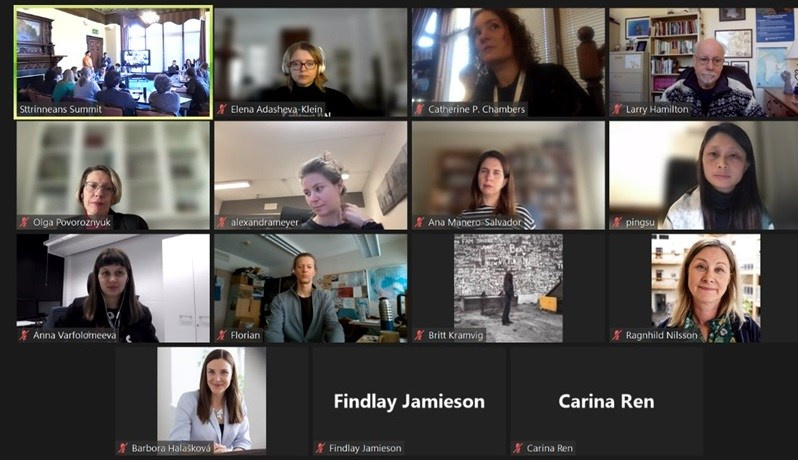


In March 2024, as part of the IASC-PA2F Fellowship, Elena Adasheva took part in the Arctic Science Summit Week 2024 (online):
The ASSW 2024 proved to be an enlightening and invaluable platform for discussions, presentations, and networking within the polar research community.
As an IASC-PA2F Fellow at the Social Human Working Group (SHWG), I participated in the SHWG sessions. One of the highlights of my involvement was presenting at the SHWG open session on March 21, 2024. It was a privilege to share insights from my research projects and discuss key takeaways from the Polar Symposium in Monaco in February 2024.
During discussions about SHWG participation in ICARP IV, we discussed a coordinated effort to compile a comprehensive document emphasizing the critical role of social sciences and humanities in polar research. This document would aim to underscore the importance of social sciences and humanities for both the academic community and research funders. It is crucial to support social scientists and humanists, especially Early Career Researchers (ECRs), conducting studies in challenging environments such as the high Arctic, aboard research vessels, and at polar stations. The restricted space and budgetary constraints for social sciences and humanities at these sites frequently present significant challenges, emphasizing the necessity for a coordinated effort.
As a member of the Research Priority Team (RPT), I participated in the ICARP IV RPT Workshop, Topic Area 4: Scientific Cooperation and Diplomacy. The open session facilitated engaging dialogues among participants regarding the importance of interdisciplinary collaboration and fostering international partnerships to address the pressing challenges facing polar regions. The closed session focused on strategic discussions, outlining actionable steps and priorities for advancing scientific cooperation and diplomacy within the polar research context.
Throughout the conference, I had the opportunity to learn about various Arctic science agencies and projects, research funding, polar education initiatives, and more. Overall, the experiences and insights gained from the ASSW 2024 were immensely beneficial. This opportunity not only enriched my understanding of the current landscape of Arctic research but also emphasized the critical need for increased integration of social sciences and humanities in addressing the multifaceted challenges of polar regions. The discussions on scientific cooperation and diplomacy further highlighted the importance of fostering strong, collaborative relationships across disciplines and borders to enhance the impact and reach of polar research.
Many thanks to the IASC-PA2F Fellowship for sponsoring my attendance.
